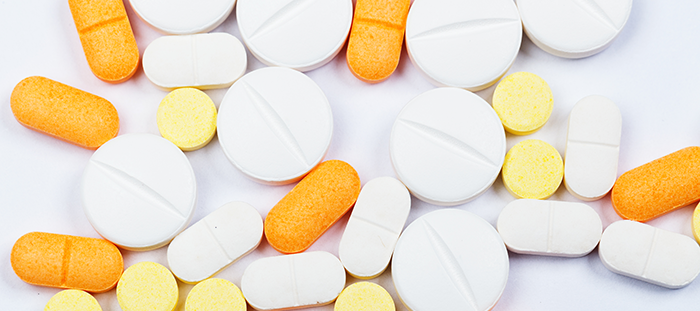Over 100,000 people per year are arrested for drug possession in Florida. While some states are moving to decriminalize or even legalize soft drugs like cannabis, other states like Florida are sticking with the attempt to eradicate drugs from the state. Florida is even cracking down on substances that previously were legal like bath salts and spice, both of were recently added to the list of illegal drugs in Florida.
Typically drug possession charges are considered to be state matters. However, if you have crossed state lines or there is a large quantity of drugs found then it may become a Federal case instead of a Florida case.
Florida has some of the harshest penalties in the country for drug possession. While that sounds scary, one thing that is important to realize is that if you’re charged with drug possession the state will have to prove possession and that can be tricky in some cases. Depending on your case’s circumstances, you may stand a good chance of not having harsh punishment if the state can’t make their case.
Drug Possession Vs. Drug Trafficking
Drug possession is seen as a less serious charge than drug trafficking. Drug possession means possession of a small amount of a controlled substance or a drug that is illegal. Drug trafficking means having enough drugs on you that it appears you are selling or moving drugs for yourself for someone else. Drug possession is still a serious charge, but the punishments for drug possession convictions are less severe than the punishments for drug trafficking.
Actual Possession Vs. Constructive Possession
In Florida, in order to be found guilty of drug possession the state must prove that you were in possession of drugs classified as illegal by Florida law. Actual possession means that the drugs were found somewhere on your person. Constructive possession means that law enforcement officers found the drugs in your vehicle, in your home, or in another place where they believe that you’re still aware of and in control of the illegal drugs. If you are arrested because drugs were found in your car, that’s constructive possession and you may be able to challenge the resulting charge because there is no direct evidence that the drugs belong to you or that you placed them there.
Florida Drug Schedules
Not all drug possession charges carry severe penalties. The penalty for drug possession is heavily influenced by what the drug is and how much of it was found. Florida has a set of five lists of illegal drugs that range in severity from Schedule I drugs which carry relatively higher penalties to Schedule V drugs that carry very light penalties if any at all. Drugs are placed on these schedules for a variety of reasons and not all of the drugs are illegal, but you can face drug possession charges if you have a controlled substance without a prescription or a medical reason that dictates you need it. Florida drug schedules are:
Schedule I drugs are:
Heroin
Cannabis
Ecstasy
LDS
Methaqualone
Peyote
Schedule II
Cocaine
Methamphetamine
Morphine
Vicodin
Fentanyl
Adderall
Opium and salts
Schedule III
Products containing less than 90 milligrams of codeine per dosage unit (Tylenol with codeine)
Ketamine
Anabolic steroids
Testosterone
Schedule IV
Xanax
Valium
Ativan
Ambien
Tramadol
Schedule V
Cough preparations with less than 200 milligrams of codeine or per 100 milliliters (Robitussin AC)
Lomotil
Motofen
Lyrica
Parepectolin
The penalties that you might face for drug possession vary based on the drug and how much of it there is.
Drug Possession Punishments
Florida does have mandatory-minimum punishments for drug crimes. Mandatory-minimums mean that the judge cannot go lower than the minimum sentence as prescribed by the Florida Legislature. If you are convicted of an offense that has a mandatory-minimum punishment you will have to serve the minimum time that is dictated by the law. While you still will get credit for time served while you await trial, you won’t be able to get released earlier than that minimum for any reason. However, mandatory-minimums only apply if the amount of the drug found is a certain amount or higher. If the amount of the drug found is under the amount required for the mandatory-minimum to apply, the punishments can include:
Marijuana: Possession of up to 20 grams of marijuana is a misdemeanor punishable by up to 12 months in jail and up to $1,000 fine.
Cocaine: You won’t face a mandatory minimum sentence for possessing up to 28 grams of cocaine but you will face a possible penalty of up to five years in prison, plus fines.
Ecstasy: The mandatory-minimum requirement for Ecstasy kicks in at 10 grams of Ecstasy or more. If you are arrested with less than that you will be looking at a possible punishment of up to five years in prison.
Methamphetamine: Possession of any amount meth is considered a third-degree felony in Florida. You won’t be subject to a mandatory-minimum for meth possession but you do face a potential sentence of up to five years in prison if you’re convicted.
Get Professional Help
Drug charges are serious and if you don’t take them seriously you could end up paying a heavy cost. Drug convictions make it more difficult to get housing, get a job, and get any type of Federal public aid including college loans. The best thing that you can do if you are arrested for drug possession is talk to an experienced attorney who knows how Florida’s drug laws work and how you can best ensure that you don’t suffer for a lifetime because of a drug possession charge. Don’t put your future in jeopardy by being unprepared to face a drug possession card. Call today to discuss the specifics of your situation and get no-nonsense legal advice from an experienced Florida attorney.


